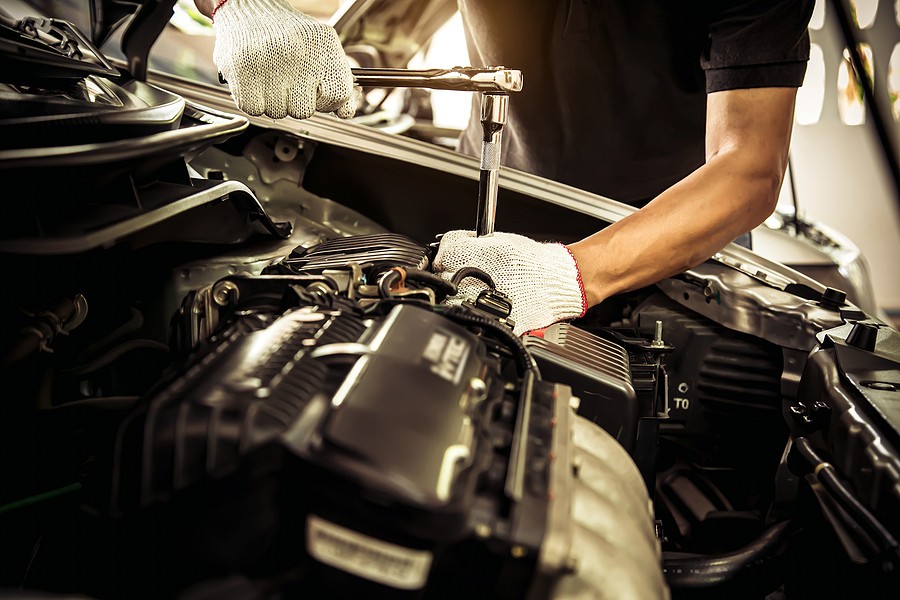Here are the 10 engine problems you should never ignore:
- Weird noises
- Engine overheating
- Smoke and steam out of the engine
- Engine oil problems
- Engine coolant problems
- Engine moisture
- Engine knocking
- Difficulty starting your engine
- Engine stalling
- Check engine light illuminating
Your vehicle's engine is one of the most important components. In fact, it is the core component of your vehicle, and if it's not running properly, you can never drive your car, and that's when you must get it fixed immediately.
Engine problems are very common, and many inexperienced drivers might not be aware of some of the critical engine problems that should be taken care of immediately. Many automotive experts confirm that if you detect engine problems early, there's a high chance that you can get them resolved without needing to replace the entire engine.
However, what are the most common engine problems you should pay immediate attention to? This article provides you with ten engine problems you should never ignore! Of course, whenever you notice any of these problems, you have to consult your mechanic and have him inspect your vehicle to resolve the issue before it gets more complicated and leads to significant repair costs.
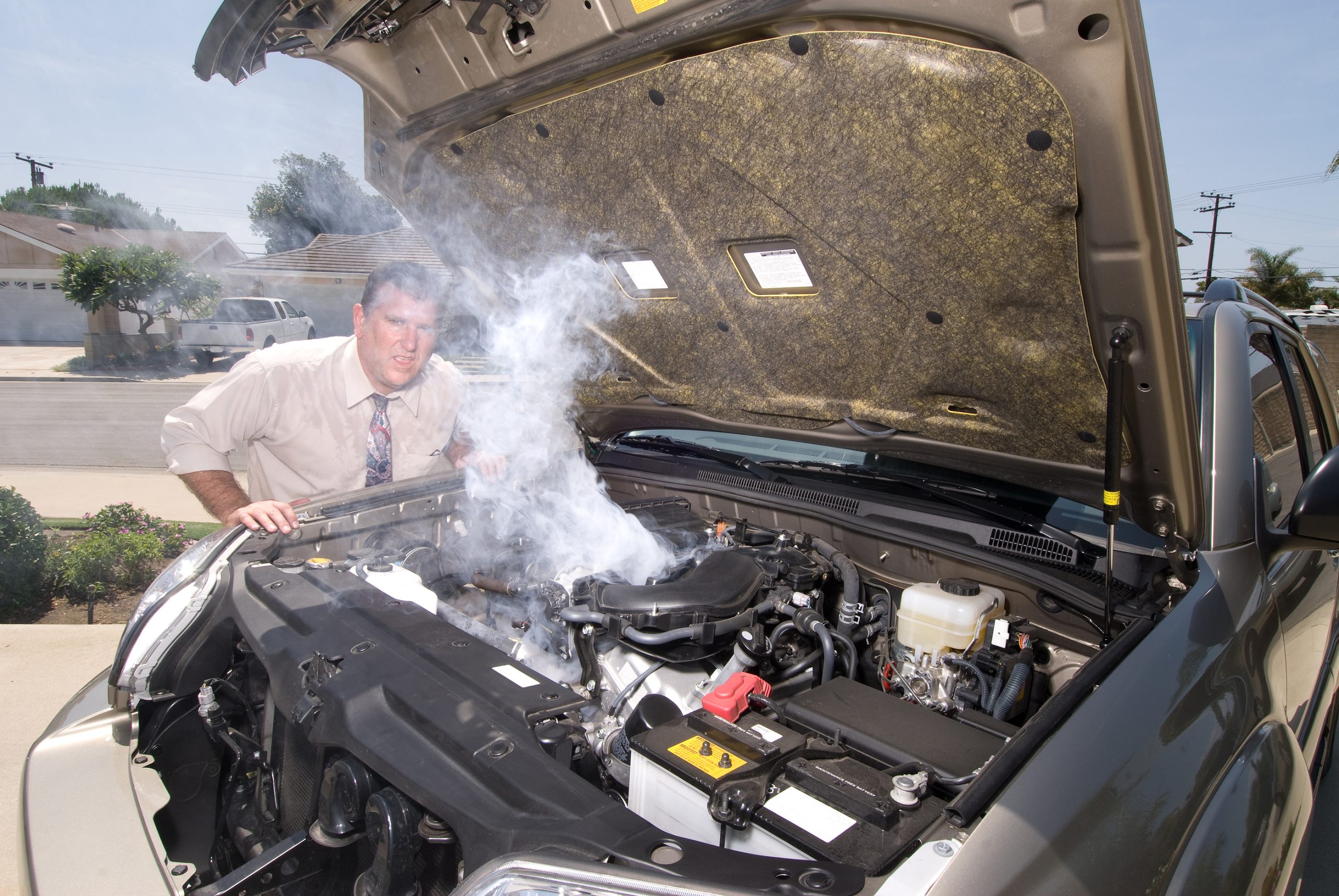
10 engine problems you should never ignore
You must learn one or two things about your vehicle between now and then to prevent major problems that could require extensive repair costs. Of course, one of the most important components that you should focus on is your engine, and luckily, there are some common problems that you can learn about fast without needing to spend so much time.
Let's take a closer look at the engine problems you should never ignore:
1. Weird noises
The first and most important problem that you should never ignore is when your engine is making weird noises, scared sometimes these noises could be like ticking or probably loud bang noise or other types of noises.
As a rule of thumb, whenever you notice any noise coming from your vehicle, whether related to the engine or other components, you must take it seriously. You should never ignore it because it can easily lead to significant damage.
Think about it this way; your vehicle is trying to communicate with you and bring your attention to certain things that are going on internally. If you ignored these noises and your vehicle's calls, don't be surprised to deal with significant damages and catastrophe outcomes that will cost you the entire vehicle.
Keep in mind that some of the engine noises might not necessarily mean a big problem but being proactive about engine problems and consulting your mechanic whenever you feel something wrong is very important if you want to maintain the engine and prevent engine failures.
2. Engine overheating
Engine overheating is one of the most critical problems impacting our vehicles. It could easily lead to catastrophe outcomes, including damaging the entire engine in no time.
Your vehicle's engine generates a lot of temperatures when it creates the energy, and this temperature cannot keep going up because your vehicle's components are not designed to withstand this extreme temperature. Therefore, your vehicle relies on lubricating and cooling systems to cool down the engine and maintain its temperature within a specific range.
Unfortunately, you can deal with problems in one of the two systems that could lead to engine overheating. In that case, your engine's temperature will keep rising until it damages the engine.
Therefore, if you notice that the temperature gauge on the dashboard is reading very high, it means that the engine is getting very hot. If that's the case, you must consult your mechanic immediately. Keep in mind that in some engine overheating scenarios, you might not be able to drive your car to the repair shop, and that's when you must pull over and stop your vehicle as soon as possible. Once you stop, allow your engine to cool down and reach out to your mechanic for further recommendations.
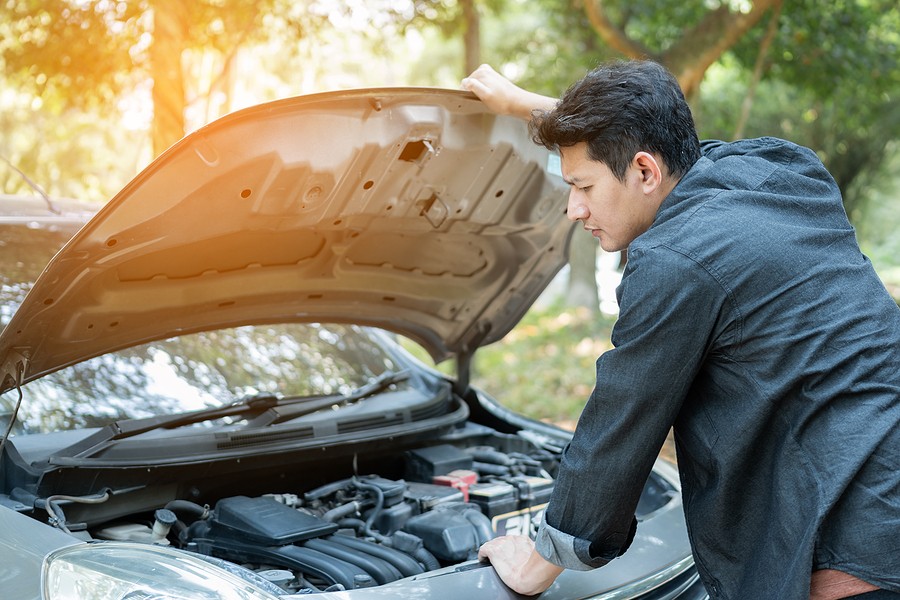
3. Smoke and steam out of the engine
When your vehicle keeps overheating and when the temperature exceeds a certain maximum threshold, don't be surprised to deal with situations where you see some clouds of smoke coming out of the engine compartment. This is an extremely scary situation, especially if you are an inexperienced driver.
Therefore, don't get to this point and monitor your temperature gauge on the dashboard. However, if you get to this point, you should immediately pull over, stop your vehicle and consult your mechanic to check what you can do next.
In most scenarios, if your car starts steaming, you cannot touch the engine compartment unless your vehicle is cooled down for at least 30 minutes. Otherwise, you might deal with some dangerous situations that could lead to risks of burns from the hot area around the compartment.
4. Engine oil problems
As we indicated before, your engine requires lubrication all the time. This is because it's made of small interacting components that might cause some friction leading to extra heat, which could cause engine overheating.
Since we mentioned that overheating is one of the worst enemies that could impact your car, maintaining proper oil level and quality is extremely important. Most drivers know that you have to top off your oil and ensure it doesn't drop below a certain minimum threshold. However, you should also maintain the oil quality and change it on time before it breaks down and becomes incapable of cooling down your engine.
Keep in mind that the frequency of oil changes depends on your oil type and vehicle site. For instance, if you're choosing regular oil, you'll probably have to change it every 5000 miles. However, if you're relying on synthetic oil, you won't have to replace it until you hit close to 7500 miles and, in some scenarios, to 15,000 miles depending on the synthetic oil quality.
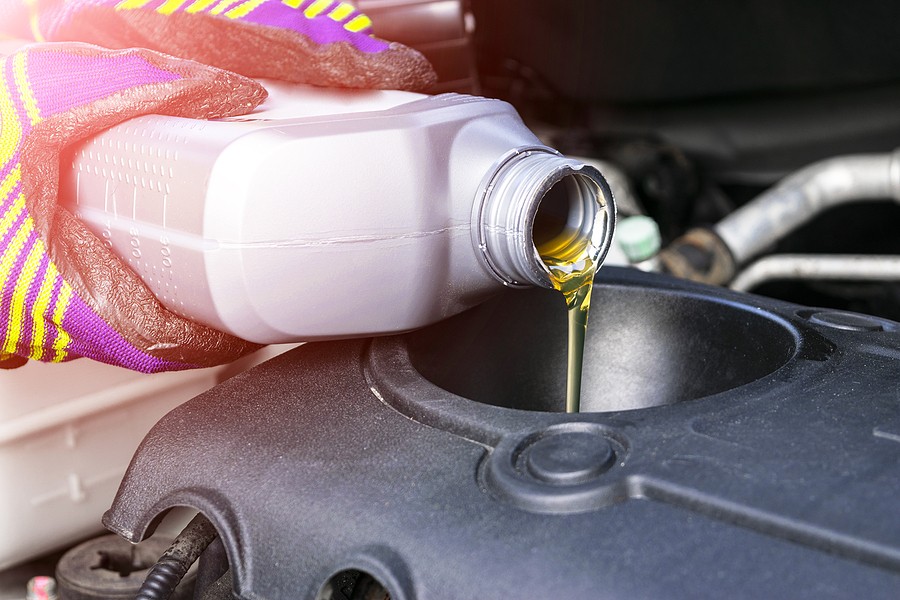
5. Engine coolant problems
Since we discussed oil problems, let's look at coolant problems, the second system that could lead to engine overheating issues.
Coolant is a fluid responsible for cooling down your engine when it gets hot. Coolant must be maintained at the right quantity and quality all the time. In some instances, you might deal with coolant leaks for any reason, and when this happens, your vehicle gets very hot, and you will notice that it's behaving weirdly. You must take any coolant leak seriously and resolve it as soon as possible before getting to a point where your engine overheats.
You might be able to perform a quick visual inspection and look underneath the vehicle to check for any signs of fluid leaks. Sometimes this bullet might be coolant and might be something else. Whatever this fluid is, you should check it out and confirm it's not coming from an important system which means you must check with your mechanic and ask about whether you are OK with driving your car with this fluid because sometimes the fluid could be just water coming out of the AC system which is not an issue.
6. Engine moisture
During extreme weather conditions, it's not rare to deal with situations where moisture makes its way to the engine compartment during extreme weather conditions. For instance, water or snow could leak inside the engine, and when this happens, you might deal with significant issues that could cause some rust around the engine compartment.
Rust is another significant enemy that could kill your car. So when you notice any rust or corrosion around the engine compartment, you should lift your mechanic no and have him check why this happened in the first place because you got to take care of the problem that leads water to get inside engine compartments.
The more you are proactive about the problem, the easier it is to resolve it and list its costs.
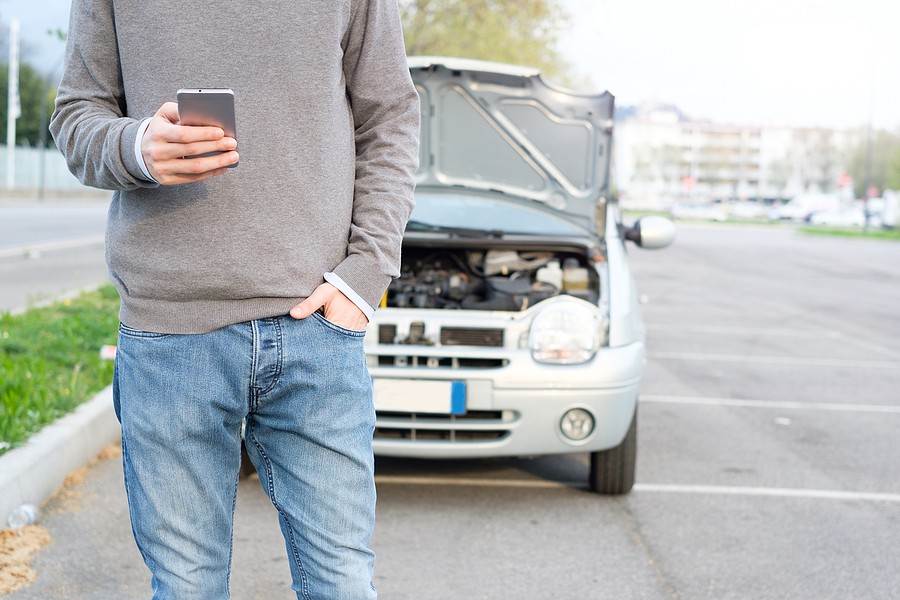
7. Engine knocking
Engine knocking is a very common problem, mostly in older engines. It means that your engine cylinders are not properly burning the air fuel mixture. Or the air-fuel mixture is burnt unevenly, which means part of it is burnt on time while the other part is burnt slower or faster.
In general, your vehicle is designed precisely, requiring a specific amount of air, fuel, and proper ignition. If any of these components fail to happen on time, you will deal with engine damages and engine problems that might show up to you in the form of engine locking.
Sometimes engine knocking can be a matter of your engine getting older which means there is no specific repair option for this issue. However, some older word experts recommended using a higher quality engine oil that helps resolve engine knocking problems. For instance, you might want to check if your vehicle is compatible with synthetic oil instead of regular oil.
Keep in mind that not all vehicles are OK with using synthetic oil. Some vehicles might get further damaged if you use a more powerful oil than the regular one. This is because the weak seals can get impacted. After all, the chemicals' strength coming with doesn't mean attic oil. Therefore, you must consult the mechanic and have him recommend the type of oil you must use, or you can check with your vehicle's owner’s manual for further recommendations.
8. Difficulty starting your engine
Have you ever tried starting your car in the early morning and realized that it didn't start, or it took some time until it started? This could be a problem related to many components. For example, if you have a bad battery or a faulty alternator, you won't be able to start your car. However, on some rare occasions, and if the battery is still in good condition and the alternator does not feel bad, your problem could be related to a bad engine.
If the engine gets to a point where it doesn't start or it doesn't crank after multiple trials, you should not ignore the problem, even if it occasionally happens, because it could be an indication that there's something wrong inside the engine compartment. Therefore, let your mechanic know the next time you go to their shop if the difficulty starting did not happen multiple times in a row. Otherwise, you must go to the mechanic shop as soon as possible to prevent the situation in areas where you can't find help nearby.
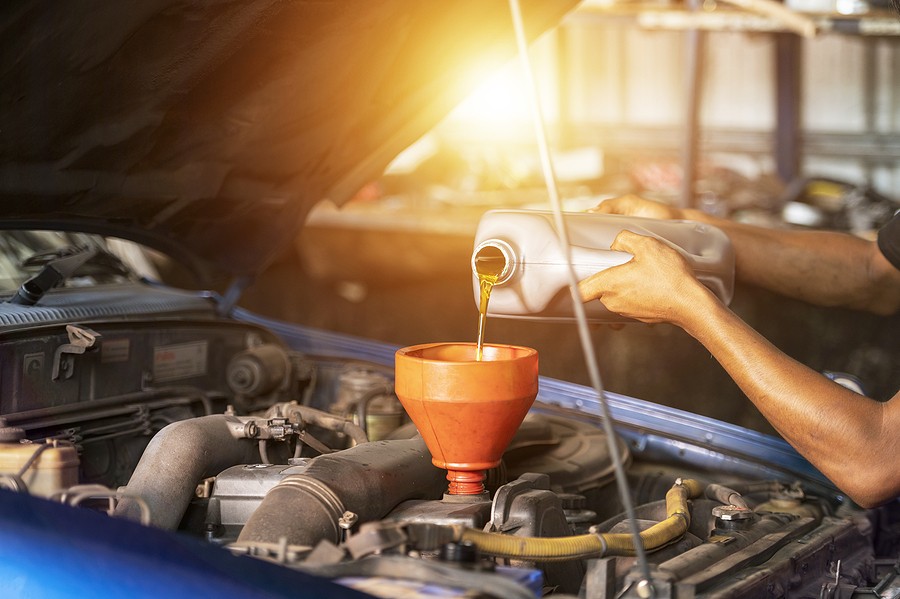
9. Engine stalling
During the lifetime of your vehicle, it's not surprising to deal with cars stalling while driving. This is critical, especially if you're driving at highway speeds. Therefore, you must perform a regular inspection of your vehicle and confirm that the engine is in good shape.
If the engine stalls suddenly when you're speeding, you all have difficulty controlling your car, and you will most likely get involved in major car accidents. Thus, engine stalling should be taken seriously, and if it happens when you're driving on city roads, you should immediately resolve the issue before taking the highway.
10. Check engine light illuminating
Finally, the check engine light could indicate that you're dealing with engine problems. Keep in mind that the check engine light is a way for your vehicle to communicate with you and display a need for end immediate check.
When your mechanic uses certain tools like the OBD scanner, he can tell exactly what's happening here. The problem could be related to the engine and could be related to many other components that are incorporated into the way your vehicle works.
What you can do is invest in a cheap OBD scanner that helps get an idea about what's going on. Sometimes, the problems that trigger the check engine light might be minor, which means you can resolve them without going to a mechanic and wasting your time, money, and effort. However, you don't necessarily have to go with the most expensive scanner because you won't need it for advanced purposes.
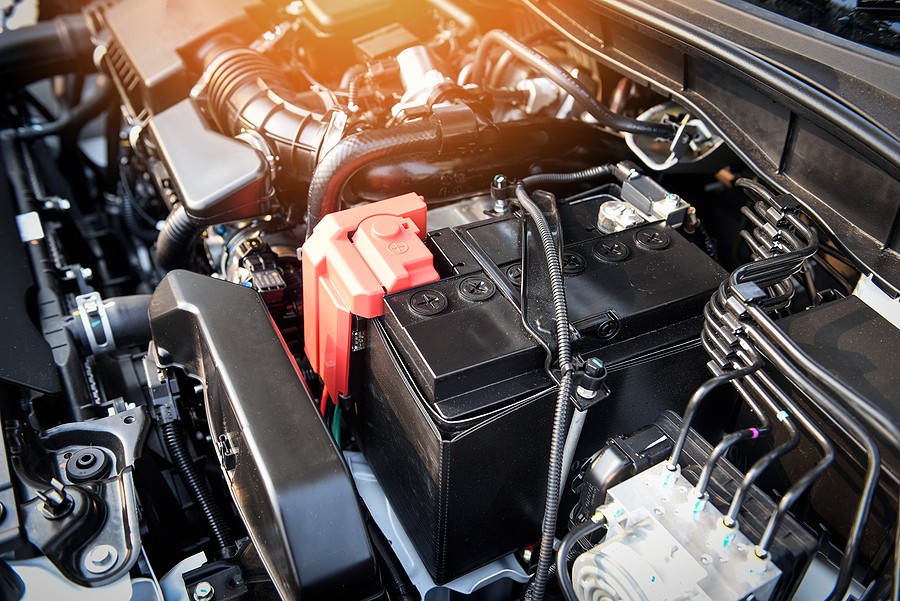
Final thoughts
Engine problems are very common, and being proactive about them and understanding them is very helpful to prevent future stressful situations and expensive repairs. This article walked you through 10 engine problems you should never ignore. These problems are a very important warning sign, and when you notice them, you must consult your mechanic to resolve the issue as soon as possible.
If you could not catch the engine problems barely and you had to deal with significant engine damages, that's never the end of the world because you can always sell this vehicle and buy a better one that won't give you a hard time—looking for somebody to buy your car with a damaged engine? Cash cars buyer is always here to help you!
Cash Cars Buyer is one of the top-rated car removal companies in the nation that guarantees to pay you the top dollars and provide you with free towing despite your living location around the United States.
Our process is very straightforward and doesn't take more than a couple of days to get your car removed safely and for the most money.
All it takes you is to:
- Describe your car’s type and condition
- Receive our instant free quote
- Accept the quote
- Get your car removed and receive your cash payment on the spot!
To learn more about our process and our team, you can reach out to us by calling us at (773) 791-4363 or visiting our home page click on the free instant online offer.

